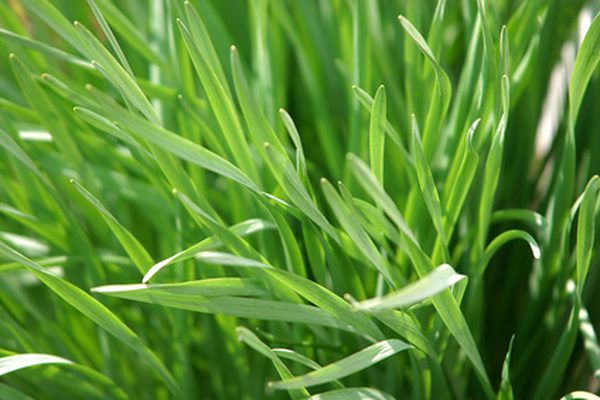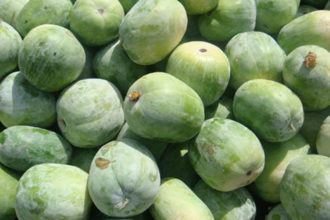Lemongrass is a grass-like plant with long slender foliage growing to about 2-3 feet tall. Leaves are grayish-green in color. Stems and leaves impart a strong lemon flavor when used in cooking. Because lemongrass is not winter hardy in colder climates, it is best grown as a container plant.
How is it grown?
Lemon grass is easily grown from stem cuttings or divisions. If lemon grass is found in the produce section of the grocery store, those stems can often be rooted. When grown in pots use pots with ample drainage holes and filled with a prepared soil mix. Outdoors place the container in a full sun location and water as needed to keep soil moist. Do not overwater as that can lead to root rot. Fertilize about every two weeks with a general purpose liquid fertilizer. Before frost, move the plant indoors to a very bright light area for the winter. While indoors, water as need and reduce the frequency of fertilizer applications.
Leaves and the stems can be harvested for use. Leaves are cut and used as needed either fresh or dried for later use while the tender white portion of the stem is most desirable.
Benefits of Lemongrass
1. Good for Digestion
Lemongrass has a cooling energy which helps to soothe your stomach and keeps your digestive functions in check. It contains a component called citral that helps to digest food. Therefore, it is mostly served after dinner. It has been used as an ancient remedy for all stomach problems in Chinese medicine like bloating, constipation or indigestion.
2. Full of antioxidants
Lemongrass tea is your detox tea. It is packed with antioxidants that help in detoxing and cleansing you from within. It helps in removal of toxins from the body by relieving fluid retention.
3. Regulates High Blood Pressure
Lemongrass is nature’s formula for taming high blood pressure. It is rich in potassium which increases the production of urine in our body, which in turn stimulates blood circulation and lowers blood pressure. By increasing blood circulation, it also helps in purifying the liver. Lemongrass is also known to limit cholesterol absorption from the intestines, thus promoting overall heart health.
4. Boosts Metabolism and Burns Fat
Lemongrass tea is a great option for your weight loss diet plan as it helps in boosting your metabolism which makes digestion quicker and helps in burning more calories. A report published in the American Journal of Clinical Nutrition in 2013 showed that polyphenols found in natural plant compounds and the caffeine content in tea increases the use of energy and enhances the oxidation of fatty acids in the body.
5. For Naturally Great Skin and Hair
Lemongrass is a great source of Vitamin A and Vitamin C which are essential nutrients for beautiful skin and hair. By improving the blood circulation, it clears up your skin, treats oily textures and also works on treating eruptions like acne, pimples and eczema.
6. Heals Cold and Flu
Lemongrass has antibacterial and antifungal properties that help you cope with cold, cough and flu. Plus, it is loaded with Vitamin C that strengthens your immunity. Boil some fresh lemongrass along with some cloves, a pinch of turmeric and tea leaves. This simple concoction is effective for breaking down mucus and phlegm build-up caused by congestion. A hot mix of lemongrass, tulsi leaves and cardamom is also a common Ayurvedic cure for cold.
7. Relieves menstrual pain
Lemongrass tea is considered excellent for women’s health. It provides relief from hot flashes and helps in reducing menstrual pain due to its soothing effect.
How much to consume per day
Leaves are used to flavor fish, soups, curries, sauces, and teas. The stems and leaves are used in Vietnamese and Thai dishes. Larger parts of the stalk can be added to stews or soup and removed much as you would a bay leaf.
A word of caution. Lemongrass tea is known to lower blood sugar levels. Therefore, diabetics should consult their doctor regarding its consumption. Similarly, pregnant or breast feeding women are advised to avoid lemongrass due to the workings of certain chemical compounds.





